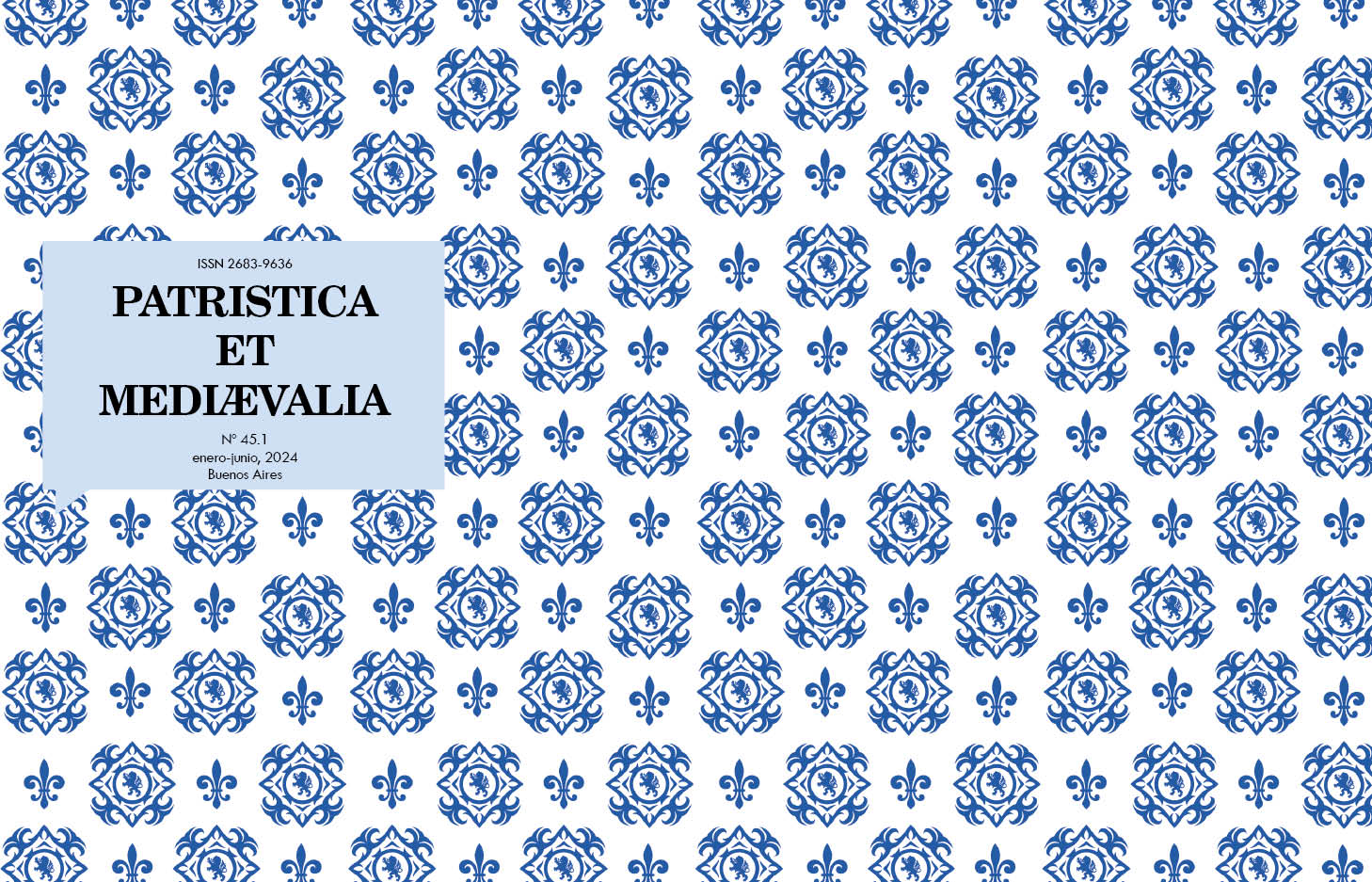Giovanni Pontano’s 'The Ass'
Abstract
We present the first Spanish translation of the Asinus, Giovanni Pontano's most original dialogue. In this dialogue, whose action takes place shortly after the peace signed between King Ferrante I of Naples and Pope Innocent VIII in 1486, Pontano combines a series of scenes from daily life in the city and the countryside with a reflection on the ingratitude and the political role of humanists in court. The text shows a clear influence from the Plautine comedies, and in that sense, it moves away from the humanist dialogues inspired by the Ciceronian and Platonic texts. Although his main objective is humorous, Pontano uses this dialogue to present his figure from different angles (including ironic self-deprecation) and to value his role among his humanist colleagues and concerning the political leaders of his time.Downloads
References
Pontano, G. (1507). Pontani Actius de numeris poeticis & lege historiæ. Aegidius multiplicis argumenti. Tertius dialogus de ingratitudine qui Asinus inscribitur. Ed. Summonte, P. Nápoles: Sigismondo Mayr.
Pontano, G. (2004). Diálogo de Carón. Trad. Vega, M. J. Salamanca: Sociedad de Estudios Medievales y Renacentistas.
Pontano, G. (2014a). Asinus. Dialogo dell’ingratitudine. Ed. bilingüe Tateo, F. Roma: Roma nel Rinascimento.
Pontano, G. (2014b). Dialoghi. Ed. bilingüe Geri, L. Milán: Rizzoli.
Pontano, G. (2020). Dialogues. Vol. 3. Ed. bilingüe Gaisser, J. Cambridge: Harvard University Press.
Pontano, G. (2022). “El Aegidius de Giovanni Pontano”. Trad. Vilar, M. Circe de clásicos y modernos 26.1, 149-189.
Pontanus, G. (1491). Dialogi qui Charon et Antonius inscribuntur. Nápoles: Mathias Moravus.
Bentley, J. H. (1987). Politics and Culture in Renaissance Naples. Princeton: Princeton University Press.
Casanova-Robin, H. (2023). “Réminiscences plautiniennes dans le dialogue Asinus de Giovanni Pontano”. En: Bonandini, A., Boulègue, L. y Ieranò, G. (eds.). Le Dialogue de l’Antiquité à l’âge humaniste Péripéties d’un genre dramatique et philosophique, París: Garnier, 327-349. (Lectures de la Renaissance latine 18).
Cox, V. (1992). The Renaissance Dialogue Literary Dialogue in its Social and Political Contexts, Castiglione to Galileo. Cambridge: Cambridge University Press.
Figliuolo, B. (2015). “Pontano, Giovanni”. En: Dizionario biografico degli Italiani. Vol. 84. Roma: Istituto della Enciclopedia Italiana.
Haywood, E. (2003). “Iter Asinarium. Per una nuova interpretatione dell’ Asinus Pontaniano”. En: De Nichilo, M., Distaso, G. y Iurilli, A. (eds.). Confini dell’Umanesimo letterario. Studi in onore di Francesco Tateo. Roma: Roma nel Rinascimento, 733-746.
Marsh, D. (1980). The Quattrocento Dialogue. Cambridge: Harvard University Press.
Geri, L. (2014). “Introduzione”. En: Giovanni Pontano. Dialoghi. Ed. Idem. Milán: Rizzoli, 5-56.
Martellotti, G. (1967). “Il primo abbozzo dell’Asinus Di G. Pontano”, Annali della Scuola Normale Superiore di Pisa. Lettere, Storia e Filosofia 36.1/2, 1-29.
Tateo, F. (1974). “L’umorismo di Giovanni Pontano e l’ispirazione etica dell’Asinus”. En: Tradizione e realtà nell’Umanesimo italiano. Bari: Edizioni Dedalo, 319-354.
1. The authors who publish in this magazine accept the following conditions:
-
They retain the copyright and grant to the magazine the right of the first publication, with the work registered under the Attribution-ShareAlike 4.0 International License that allows third parties to use what is published as long as they mention the authorship of the work and the first publication in this magazine.
-
They can make other independent and additional contractual agreements for the non-exclusive distribution of the version of the article published in this magazine (eg. include it in an institutional repository or publish it in a book) provided that they clearly indicate that the work was first published in this journal.
-
They are allowed and recommended to publish their work on the Internet (for example on institutional or personal pages).
2. AutoArchive Conditions. Authors are allowed and encouraged to distribute post-print electronic versions of their manuscripts because it promotes their circulation, a possible increase of quotation and a major reach among the Academic community. Color RoMEO: blue.













